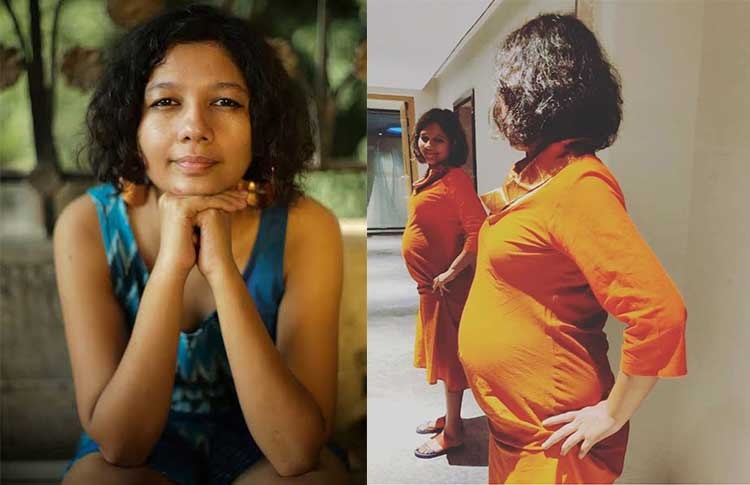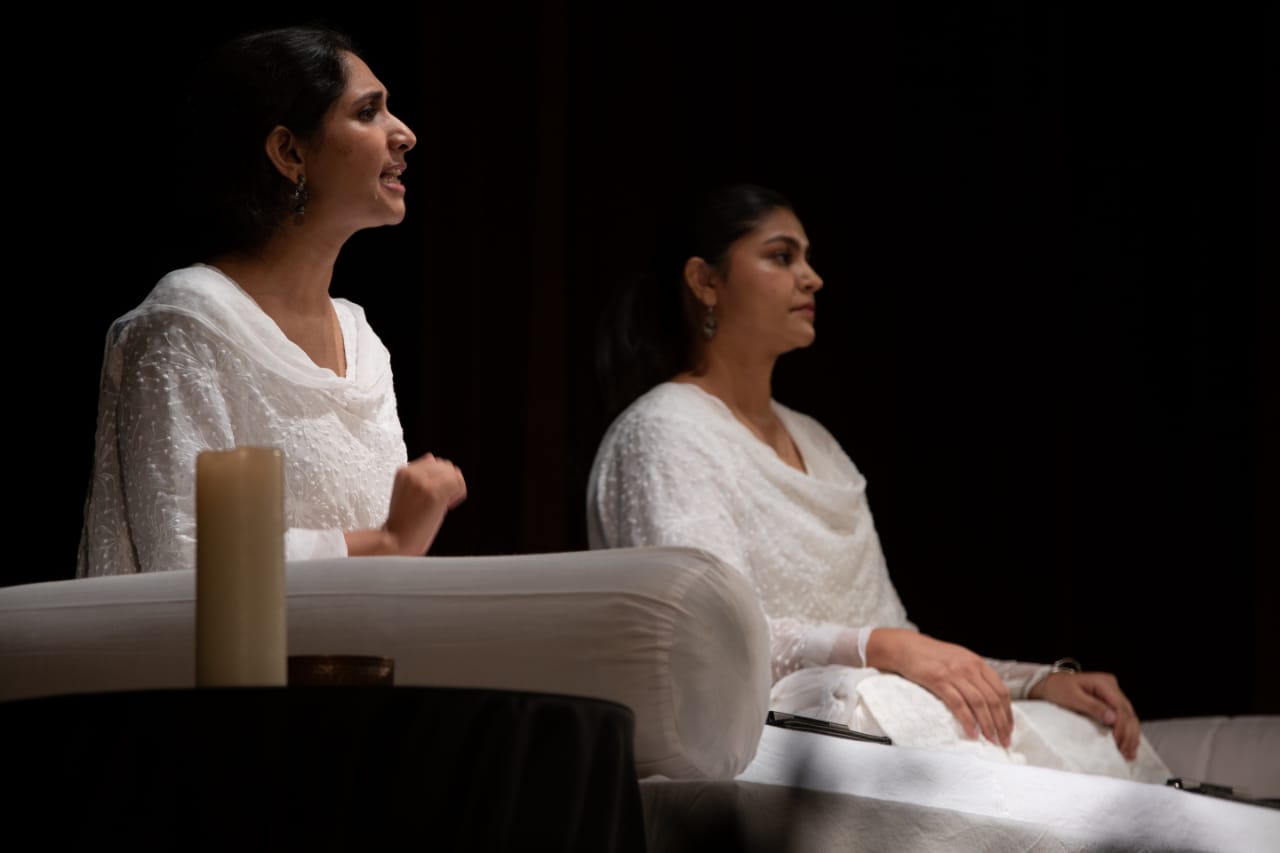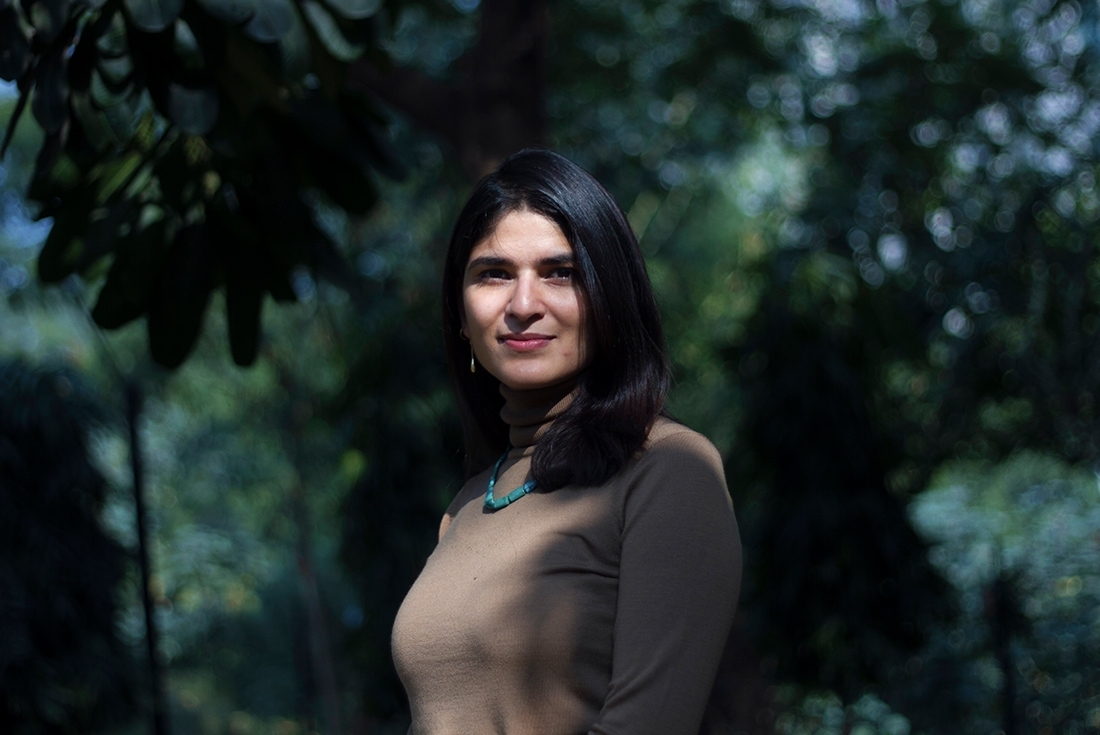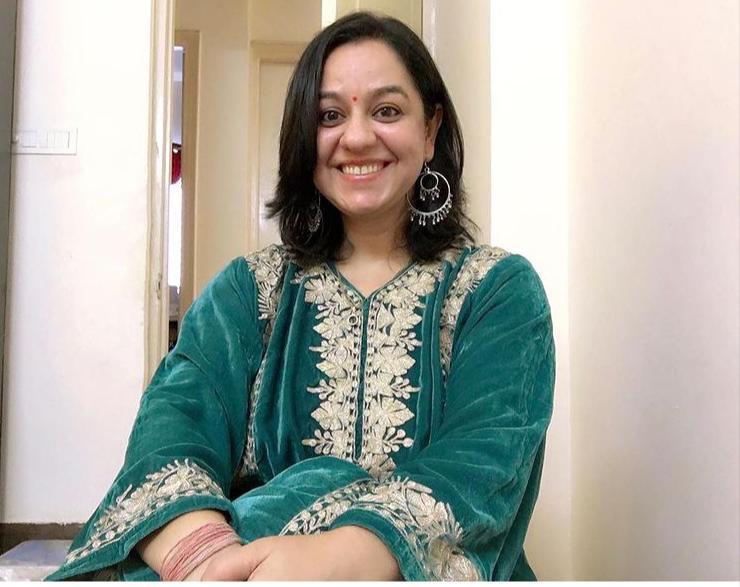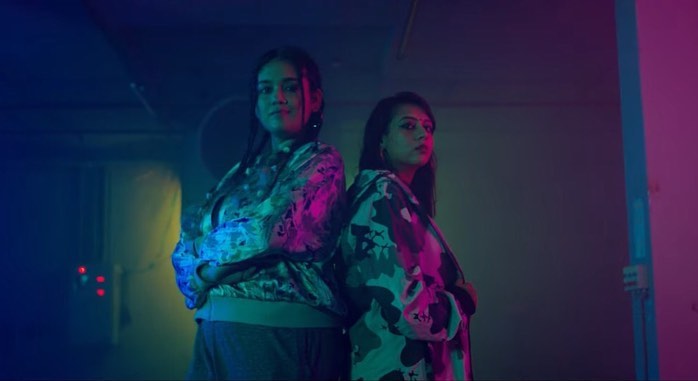Malvika Bhatia Is Archiving Oral History From The Last Generation That Lived Through 1947
- IWB Post
- January 5, 2019

Owing to the skewed concepts of history fed to us by textbooks, we often lose sight of the fact that the past is as dynamic as our present. That it was a palpable whole that involved people beyond the ones that our history books teach us about.
For instance, when we think about the events of 1947 or the modern history as they call it, we are so hard-wired to think of Gandhi, Nehru, and Jinnah that “we easily forget it involved other people,” says Malvika Bhatia of CAI. While we read about the event we overlook the fact that “these events affected people,” she adds.
The project head at CAI (The Citizens Archives of India), Malvika, thus, is on a pursuit to collect oral history from the last generation that knew 1947 under the Generation 1947 Project . “The project aims to create an archive of oral history recordings of the 1947 generation of Indians and digitise various records such as letters, newspapers, refugee cards, official correspondences, and passports,” states the website.
The Citizens’ Archive of India aims to record and archive the personal stories of Indian citizens who have witnessed India develop into the nation we see today. Within a few precious years, many of these stories will be lost to us forever. We believe that eyewitness accounts and personal experiences form an integral part of nation’s history. It is critical that we preserve these stories for future generations to understand a history that finds no place in our schoolbooks. Our vision is to create a publicly accessible archive for scholars, students, and ordinary citizens who wish to listen to and learn from these stories. We also aim to develop educational and outreach programmes using these narratives to build dialogue and foster mutual understanding about the nation’s past, present, and future. #oralhistory #indiaat70 #archive
37 Likes, 3 Comments – The Citizens’ Archive of India (@citizensarchiveofindia) on Instagram: “The Citizens’ Archive of India aims to record and archive the personal stories of Indian citizens…”
“Learning about the past from someone who has lived through it, that’s the beauty of oral history,” says Malvika.
When it comes to interviewing people from this generation, it certainly is a big deal. As Malvika puts it, “it is about walking into a stranger’s home and getting them comfortable.”
There are times when they ask nominators (friends or the relatives of interviewees who have nominated them) to explain the purpose of the project before they begin the interview. Other times they just meet the interviewees themselves and establish a rapport which more often than not is done over a cup of tea or food offered to them by the hospitable interviewees.
Once the rapport is established, the next step is to obtain permission, both written and oral. It is integral to their project ethics to ensure that the interviewees are comfortable. “After all they are doing us a favour,” Malvika explains.
The interview generally happens in multiple sessions, two or three at an average. At that, the longest interview had once extended to 15 sessions.
Our first #100yearold interviewee, Mrs. Mithoo Coorlawala, attended #NewnhamCollege at the #UniversityOfCambridge from 1938-1939. Back then, they didn’t award women degrees. Mrs. Coorlawala tells us how life has changed since then. “The men’s colleges were so furious when two women’s colleges were established, that they burnt down the gates of our college, Newnham, and also, they had a big tamasha in the marketplace. There was a lot of violence against the opening of a women’s college. And (they said), ‘You can have a college there if you must, but you don’t get degrees.’ You could study, have the same syllabus, sit for the same exams, but when you passed, you didn’t get a convocation. You got your degree by post. It was not a recognized thing. It was more a ‘do it if you must’. That was pretty humiliating. After a lot of agitation, they began to give degrees at a convocation, same as the men. So I went to celebrate 50 years of that.” This is a photograph of Mrs. Coorlawala on the day of her convocation ceremony in 1998, 60 years after she first attended Cambridge. #OralHistory #TheGeneration1947Project
91 Likes, 4 Comments – The Citizens’ Archive of India (@citizensarchiveofindia) on Instagram: “Our first #100yearold interviewee, Mrs. Mithoo Coorlawala, attended #NewnhamCollege at the…”
When we talk about the last generation that knew 1947, we are talking about people who have struggled for the freedom that we are born into. We are talking about a generation that has also paid a hefty price for it in the form of partition. But we also talk about a generation that has seen much simpler times than what we get to see.
As soon as these interviewees unlock the treasure house of memories, they burst into an array of emotions. Malvika shares that details as tiny as the mention of their hometowns “light up their eyes.”
Although it is not a partition archive, some interviewees do have partition stories. Malvika shares, “Some of them tear up. Sometimes they express extreme homesickness triggered by the idea that they will never be able to see their “homes” again.”
She adds, “Some of them say, I can still see the entire map of my hometown in my sleep. These people have seen horrific things and thus the sadness comes in naturally. But the general feeling is that of happiness. They are all very happy just to be heard and to recollect and cherish all those memories.”
Amidst such high-octane outbursts of emotions mixed with stories and memories from a crucial period of Indian history, Malvika obviously comes across quite a number of stories that settle deep within her psyche.
She shares one such story that she is sure she’ll narrate to her children in the future. It is the story of Mr. Arun Bhatia, the seven-year-old participant of Quit India Movement (which he used to pronounce as ‘KV-EET’ back then).
In a video shot by CAI, Mr. Bhatia shares how he became the part of a march in which an effigy (or thaathdi as he calls it) of Churchill was to be burned. The innocent seven-year-old neither knew who Churchill was nor what a thaathdi was. It was just the prospect of being able to play with matches in front of the elders and the lyrical quality of the slogan, “Hai re Churchill, hai-hai” that lured him to become a part of the procession.
In the video, he recollects with impeccable details the effigy of the Churchill and all that transpired. Here is the entire video:
The Citizens’ Archive of India
While he awaits his interview, Mr. Arun Bhatia (father of Sonali Bhatia) shared a beautiful story about the #QuitIndiaMovement with us. We wanted to share it with all of you, to honour its 75th…
There are many such stories. However, one thing that remains common about these interviews is a question that Malvika asks everyone and the answer to it, that is always on the same lines.
She shares, “I ask them about the one thing that the current generation has that they missed out in their childhood. And the answer always goes along the lines, I don’t think I have missed anything.”
In fact, they feel that it is the current generation that is missing out on a lot. They feel that the contemporary generation is not connected to its roots and that it knows nothing about the joys of growing amidst the simple pleasures of life.
Malvika points out a surprising detail about the women interviewees. She shares, “Whether they are highly educated or have never been to school at all, they have one thing in common – they have a great perspective.”
“My mother used to work for the #IndianIndependenceLeague, so when #Netaji (#SubhasChandraBose) started the #IndianNationalArmy, she became a recruiter for them, and immediately sent my sister and I to be trained in the #RaniJhansiRegiment. We had #military training and #nurses’ training. We didn’t immediately have uniforms, so for a while we trained in our ordinary clothes.” -Lt. Rama Mehta (now Rama Khandwala), a ‘rani’ in the #AzadHindFauj tells us about her experiences watching the #SecondWorldWar play out in front of her eyes at #Maymyo in #Burma. Help us collect more stories like this one; go to http://citizensarchiveofindia.org/support-us/ to donate. #TheGeneration1947Project #Myanmar #NetajiSubhasChandraBose #worldwar2 #oralhistory #militaryhistory #archive #indiaat70 #womenshistorymonth
88 Likes, 3 Comments – The Citizens’ Archive of India (@citizensarchiveofindia) on Instagram: “”My mother used to work for the #IndianIndependenceLeague, so when #Netaji (#SubhasChandraBose)…”
The project today is 96 interviews rich with 85 completed ones. There is a lot that Malvika has learned from them. She shares, “Talking to them I have learned greater tolerance and to leave my prejudices behind. The experience has taught me to be a lot more open-minded.”
CAI’s aim is to create a publicly accessible archive with The Generation 1947 Project. While Malvika has only covered stories from Mumbai till now, she aims to expand it beyond and is currently seeking funding for the same.
Linked below is Sunetra Limaye’s journey to school. If you know anyone with a similar story feel free to approach CAI with the same. Here is the video:
The Citizens’ Archive of India
Happy #WomensDay! For Women’s Day we wanted to share the story of one of the most inspiring women we’ve met so far, Mrs. Sunetra Limaye (grandmother of Saloni Mayekar). Mrs. Limaye grew up in a…
First published on Jul 23, 2018.
- 0
- 0




